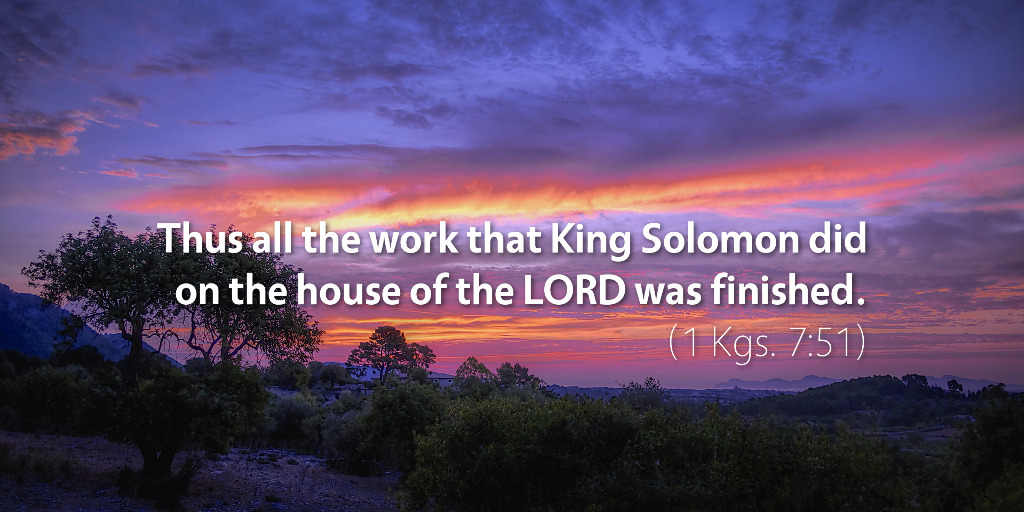Bible Readings for October 4th
1 Kings 7 | Ephesians 4 | Ezekiel 37 | Psalms 87–88
As we began to review yesterday, the construction of Solomon’s temple is not a brand new idea at this stage in the story of God’s people. It is not as though Yahweh has been working on various plans for awhile and then he suddenly decides to build a temple to try something different in his relationship with his people. Rather, the idea of the temple—a holy dwelling place where Yahweh can meet with his people—has been present since the very beginning of the story in the Garden of Eden. In fact, the temple is specifically built to announce the coming re-creation of the Garden of Eden.
It is no surprise, then, that the temple is built to resemble a garden, as we read about in 1 Kings 6–7. Built into the very walls of the temple, we find carved garden imagery, including gourds, palm trees, and flowers (1 Kgs. 6:18, 29, 32, 35), as well as images of the cherubim who had been stationed at the entrance of the Garden of Eden to guard the way to the tree of life (1 Kgs. 6:23–29, 32, 35). The furniture of the tabernacle is also filled with garden imagery, including pomegranates and lilies that set atop pillars (1 Kgs. 7:18–20, 22, 42) and gourds surrounding the bronze basin (1 Kgs. 7:24). In fact, the brim of the bronze basin itself was shaped like the flower of a lily (1 Kgs. 7:26). Furthermore, the golden lampstands mentioned in passing (1 Kgs. 7:49) were to be shaped like trees, with branches and cups and calyxes and flowers, as we saw back in Exodus 25:31–40.1
Just as with the tabernacle, Yahweh is creating a new Garden of Eden where he can dwell in the midst of his people. The temple was meant to stand forever as the place where God’s glory dwelt in the midst of his people and the means by which God would renew creation, but that isn’t how the story goes. This temple is glorious, but it fails to usher in new creation. The people of Israel will continue to languish in the hardness of their hearts, and even King Solomon will soon begin to abandon Yahweh in order to worship false gods (1 Kgs. 11:4).
The message of 2 Corinthians 5:17 is critical, then: “If anyone is in Christ, he is a new creation. The old has passed away; behold, the new has come.” Christ through his resurrection has accomplished what Solomon’s temple could not—he defeated sin, death, and the devil to renew his creation, beginning with us. If you are in Christ, you are experiencing glory unknown during the days of Solomon—a glory that will be made complete when Jesus Christ returns to finish renewing all of creation.
1 Allen P. Ross, Recalling the Hope of Glory: Biblical Worship from the Garden to the New Creation (Grand Rapids, MI: Kregel, 2006), 246–47.
Podcast: Play in new window | Download (4.7MB) | Embed
Subscribe: Apple Podcasts | RSS | More

Scripture quotations are from The Holy Bible, English Standard Version copyright © 2001 by Crossway Bibles, a division of Good News Publishers. Used by permission. All rights reserved.


